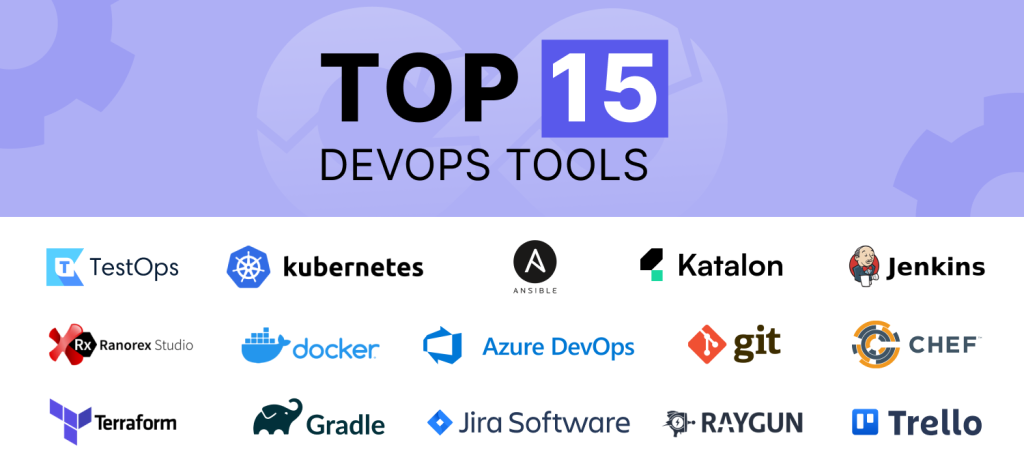
The DevOps landscape continues to evolve rapidly, offering a wide range of tools to automate and streamline software delivery pipelines. Here are some of the leading DevOps tools in 2024, categorized by their primary function:
Infrastructure Management & Provisioning:
- Terraform: Open-source infrastructure-as-code tool for managing and provisioning infrastructure across multiple cloud platforms and on-premises environments.
- Ansible: Agentless automation platform for provisioning, configuration management, and application deployment across various platforms.
- Pulumi: Infrastructure-as-code tool written in different programming languages (Python, TypeScript, etc.) for cloud-native deployments.
- AWS CloudFormation: Cloud-specific infrastructure-as-code tool for managing AWS resources and services.
- Azure Resource Manager (ARM): Cloud-specific infrastructure-as-code tool for managing Azure resources and services.
- Google Cloud Deployment Manager: Cloud-specific infrastructure-as-code tool for managing Google Cloud resources and services.
Continuous Integration & Continuous Delivery (CI/CD):
- Jenkins: Open-source and popular CI/CD tool with extensive plugin ecosystem for customization.
- GitHub Actions: Cloud-based CI/CD platform integrated with GitHub repositories, offering seamless development workflows.
- GitLab CI/CD: CI/CD platform integrated with GitLab repositories, offering comprehensive DevOps features.
- CircleCI: Cloud-based CI/CD platform with features like parallel testing and fast feedback loops.
- Tekton: Open-source Kubernetes-based CI/CD framework for building portable and scalable pipelines.
- Argo Workflows: Kubernetes-based workflow engine for building and running complex CI/CD pipelines.
Configuration Management:
- Chef Automate: Comprehensive configuration management platform with Chef Infra for infrastructure and Chef InSpec for compliance and security.
- Puppet Enterprise: Enterprise-grade configuration management platform with Puppet Server and Puppet Open Source for managing configurations across diverse environments.
- SaltStack: Open-source configuration management tool with Salt Minion agents for managing configurations across various systems.
Monitoring & Observability:
- Prometheus: Open-source metric scraping and aggregation tool for building custom monitoring dashboards and alerts.
- Grafana: Open-source visualization and analysis tool for displaying time-series metrics and other data from various sources.
- Datadog: Cloud-based monitoring platform with comprehensive infrastructure, application, and security monitoring capabilities.
- New Relic: Cloud-based platform for application performance monitoring, real-time insights, and root cause analysis.
- Dynatrace: AI-powered platform for application performance monitoring, infrastructure monitoring, and digital experience monitoring.
Collaboration & Communication:
- Slack: Popular communication platform for team collaboration and real-time communication during DevOps workflows.
- Microsoft Teams: Collaborative platform for communication, file sharing, and project management within Microsoft ecosystem.
Note: Choosing the right DevOps tools depends on your specific needs, team size, and budget. Consider factors like:
- Complexity of your infrastructure and applications: For large and complex environments, enterprise-grade tools might be needed.
- Team skillset and preferences: Choose tools your team is comfortable with or willing to learn.
- Budget: Open-source options are available, but paid tools often offer more advanced features and support.
- Integration needs: Ensure chosen tools integrate seamlessly with your existing infrastructure and workflows.
Say goodbye to the hassles of bike ownership! MotoShare.in offers affordable rentals, whether you need a scooter for errands, a bike for a road trip, or a reliable ride to explore new cities.

 Starting: 1st of Every Month
Starting: 1st of Every Month  +91 8409492687
+91 8409492687  Contact@DevOpsSchool.com
Contact@DevOpsSchool.com
